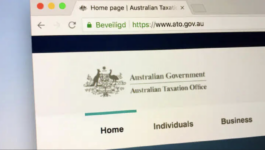Should Those Involved in Tax Fraud Schemes be Sent to Prison?

Lauren Cranston will spend at least five years behind bars for her role in the hundred million dollar Plutus Payroll tax fraud scheme.
The 30-year old is the daughter of Michael Cranston, a former deputy commissioner of the Australian Taxation Office.
She was sentenced by the Supreme Court of New South Wales to a full term of eight years in prison with a minimum term of five years.
She has been taken into custody and will be eligible to apply for release on parole in March 2028.
Deputy commissioner acquitted, but his children convicted
A jury in the District Court of NSW acquitted Michael Cranston of misusing his role to assist his children. He resigned from the ATO one month after his children were charged.
Both of his children, Adam and Lauren Cranston, have been found guilty of their participation in the Plutus Payroll tax fraud scheme which ripped off the Federal Government to the tune of more than $105 million and is being hailed as one of Australia’s largest ever tax frauds.
Adam, Lauren and their co-conspirators, were found guilty of the same two offences: conspiring to dishonestly cause a loss to the Commonwealth and conspiring to deal with the proceeds of crime.
The offences
Conspiracy to defraud by obtaining a gain is an offence under section 135.4 of the Criminal Code Act 1995 (Cth) which carries a maximum penalty of 10 years in prison.
Dealing with the proceeds of crime is also known as ‘money laundering’, and these types of offences are contained in both state and Commonwealth legislation.
As to Commonwealth legislation, Chapter 10, Part 10.2, Division 400 (sections 400.1 to 400.9) of the Criminal Code Act 1995 (Cth) sets out a number of offences relating to dealing in the proceeds of crime, as well as the definitions that relate to those offences. These laws apply across Australia.
The maximum penalties that apply to these offences are determined according to the accused person’s state of mind at the time of the offence – namely, whether the conduct was negligent, reckless or intentional, as well as the value of the proceeds derived. The amount of money or the value of property involved is also a significant factor in sentencing.
Ms Cranston was found guilty of dealing with proceeds of crime in the sum of more than $1 million, which is an offence under section 400.3 of the Act carrying a maximum penalty of 25 years in prison.
Sentencing proceedings
During the sentencing proceedings, the court heard that Ms Cranston’s role was to process payroll runs for Plutus and operate the email accounts of the second-tier companies.
Justice Anthony Payne noted she was not involved in the initial planning and set up of Plutus.
He determined that Ms Cranston’s offending fell towards the “bottom of the hierarchy” and her participation was largely out of ‘misguided loyalty’ to her brother. Personally, she only benefitted by about $182,000 from the scam.
Her co-accused, Adam Cranston, Patrick Wilmott, Dev Menon and Jason Onley, are yet to be sentenced.
Lengthy trial
The Supreme Court trial has been going on for nine months with two months of jury deliberations, which is not unusual in cases of this nature, because they can be incredibly complex.
While the company Plutus Payroll, appeared to be tax compliant during its operation (from 2014 to 2017) – its clients included legitimate companies for whom it processed wages. Some of these clients included government departments.
Fast cars, real estate, planes and boats
Plutus defrauded the government by siphoning money through lower level companies with dummy directors keeping millions in GST and Pay As You Go (PAYG) tax through a web of second-tier ‘phoenixed companies’.
Some of these company ‘straw directors’ were dependent on illicit drugs and desperate unemployed people. They willingly opened bank accounts in their names in exchange for cash, without ever knowing they were involved in commonwealth fraud.
Meanwhile, the mastermind team spent millions on “toys” — extravagant purchases like real estate, boats and fast cars.
Phoenix activity is an illegal practice, and occurs when a new company, for little or no value, takes over and continues the business of an existing company that has been liquidated or otherwise abandoned to avoid paying outstanding debts, which can include taxes, creditors and employee entitlements.
Straw directors are also known as dummy directors. They act as the ‘legal representative’ of a company, although typically in ‘name only’ and have no real involvement in the company. This is done to mask the real owner/controller of the entity. It’s estimated that phoenix activity costs the Australian economy about $3 billion a year.
However, the ATO has these ‘fake’ companies and directors firmly in its sights.
Crackdown on illegal phoenixing
The set up of Plutus Payroll was only one which led the Australian Federal Government to implement stronger laws around company directors, enforcing a scheme whereby company directors and alternate directors are required to have a Director ID number, whether they are Australian directors, or foreign directors of Australian companies.
These changes came into effect with amendment to the Treasury Laws (Registries Modernisation and Other Measures) Bill 2019.
Offences and penalties for failing to adhere to the scheme are outlined in the Corporations Act 2011. Directors can face criminal charges or civil prosecution with penalties ranging from $13,200 (criminal) to $110,000,000.
Criminal prosecution can also result in 12 months imprisonment.
Where is the money?
Liquidators have been sorting through the convoluted web of accounts since 2018, and it is still not known how much money will be recovered.
As of 2018, there were 226 workers who had made claims against Plutus companies for unpaid wages and entitlements.
Under bankruptcy laws in Australia, when something like this occurs, the big creditors are usually paid first, when funds are able to be recovered. In this case, that would be the ATO.
The total claims from employees were estimated to be about $740,000 which suggests they would be one of the last in the queue to receive money owed them.
Receive all of our articles weekly
Related Articles
RELATED LEGISLATION
- Section 135.1(1) Criminal Code Act 1995 | General Dishonesty - Obtaining a Gain
- Section 135.1(3) Criminal Code Act 1995 | Dishonestly Causing a Loss
- Section 135.1(5) Criminal Code Act 1998 | General Dishonesty Causing a Loss
- Section 135.1(7) Criminal Code Act 1995 | Dishonestly Influencing a Commonwealth Public Official
- Section 135.4 Criminal Code Act 1995 | Conspiracy to Defraud
- Section 135.4(1) Criminal Code Act 1995 | Conspiracy to Defraud Obtaining a Gain
- Section 135.4(3) Criminal Code Act 1995 | Conspiring to Dishonestly Cause a Loss
- Section 135.4(5) Criminal Code Act 1995 | Conspiracy to Defraud – Dishonestly Causing a Loss or Risk of Loss
- Section 135.4(7) Criminal Code Act 1995 | Dishonestly Conspiring to Influence Public Official
- Section 400.3 Criminal Code Act 1995 | Dealing in Proceeds of Crime $1,000,000 or more
- Section 400.4 Criminal Code Act 1995 | Dealing in Proceeds of Crime $100,000 or more
- Section 400.5 Criminal Code Act 1995 | Dealing in Proceeds of Crime $50,000 or more
- Section 400.6 Criminal Code Act 1995 | Dealing in Proceeds of Crime $10,000 or more
- Section 400.7 Criminal Code Act 1995 | Dealing in Proceeds of Crime $1,000 or more
- Section 400.8 Criminal Code Act 1995 | Dealing in Proceeds of Crime
- Section 400.9 Criminal Code Act 1995 | Dealing in Property Reasonably Suspected of being Proceeds of Crime







